The Way We Were Blu-ray Movie
HomeThe Way We Were Blu-ray Movie 
Limited Edition to 3000 - SOLD OUTTwilight Time | 1973 | 118 min | Rated PG | Nov 12, 2013
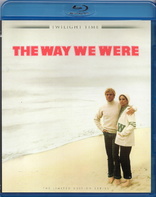
Movie rating
7.1 | / 10 |
Blu-ray rating
| Users | 4.5 | |
| Reviewer | 4.0 | |
| Overall | 4.4 |
Overview
The Way We Were (1973)
Two desperate people have a wonderful romance, but their political views and convictions drive them apart.
Starring: Barbra Streisand, Robert Redford, Bradford Dillman, Lois Chiles, Patrick O'Neal (I)Director: Sydney Pollack
| Romance | Uncertain |
| Drama | Uncertain |
Specifications
Video
Video codec: MPEG-4 AVC
Video resolution: 1080p
Aspect ratio: 2.40:1
Original aspect ratio: 2.39:1
Audio
English: DTS-HD Master Audio 5.1 (48kHz, 24-bit)
Music: DTS-HD Master Audio 2.0 (48kHz, 24-bit)
Subtitles
English SDH
Discs
50GB Blu-ray Disc
Single disc (1 BD)
Playback
Region free
Review
Rating summary
| Movie | 4.0 | |
| Video | 5.0 | |
| Audio | 4.5 | |
| Extras | 3.5 | |
| Overall | 4.0 |
The Way We Were Blu-ray Movie Review
A misty watercolored Blu-ray.
Reviewed by Jeffrey Kauffman November 15, 2013A lot of Baby Boomers and later generations assume that political activism started with them, but of course every generation has had its “activists” —including our Founding Fathers (and Mothers), it should be stated. The 1930s and early 1940s were an especially potent time for political foment, with so-called radical movements like American Communism becoming quite popular. Something about having experienced the Depression seemed to bring out a yearning for “social justice” in a lot of people which tended to manifest in left leaning ideals and, in some cases at least, outright Marxism. Many of these idealists later found out that the pendulum tends to swing both ways, and by the time reactionary elements began branding people as traitors to our nation, people who had been for the most part youthful adherents to a hoped for Utopia rather than folks more acutely political in the strictest sense, that first blush of youthful optimism had soured to discord and in some cases fear. As the 21st century rolls along, memories fade and we seem further and further removed from some of the epochal sociopolitical movements of the mid-20th century, but some of us experienced these changes, albeit vicariously, through what our parents and other relatives went through. But in fact The Way We Were itself mixes nostalgia with a more caustic glance backward, essaying a trip through memories as is so eloquently alluded to in the famous theme from the film. And remember we must, for any number of reasons. My own Uncle was a card carrying American Communist in the 1930s who was later called before the HUAC and the Dies Committee in the 1950s (Martin Dies called my Uncle, who was a union organizer, “The baby-faced Pinko of New York City’s docks”, a description my Uncle cherished until the day he died). These anecdotal reminiscences are hopefully useful to indicate that there was always a ripple effect outward from those devotedly following any tenet to those who were in some cases only tangentially involved with them. It must only be magnified when those “involved” are involved, if you catch my drift. That’s the general setup of The Way We Were, an improbable romance between a rabble rouser played by Barbra Streisand and her straitlaced paramour portrayed by Robert Redford. The Way We Were is one of the most fondly remembered films of its era, one which has maintained a high level of popularity not only due to its intrinsic content but also due to its immensely popular and Academy Award winning theme song by Marvin Hamlisch and Marilyn and Alan Bergman.
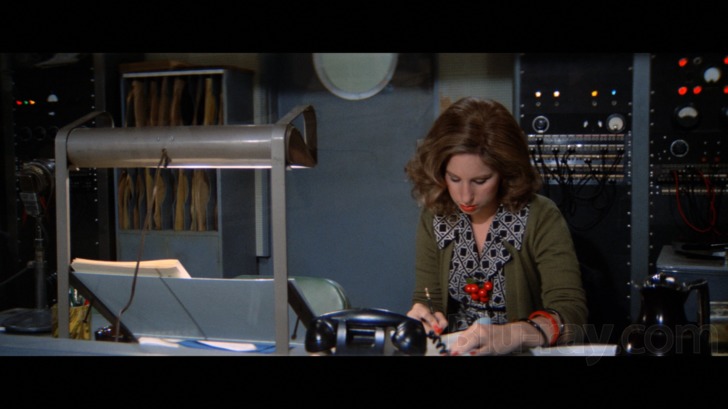
One of the interesting things about “radicalism” born in the thirties is how so much of it seemed to be centered around the Spanish Civil War. Something about the (largely Communist) resistance against the Fascist forces of Franco really lit a spark in a lot of people, especially in America, which was then officially a neutral nation. As some of you may know, a group of freelance “mercenaries” (almost all of them simply concerned civilians without a lot of military experience) banded together to form The Abraham Lincoln Brigade, which raised awareness of the situation and which sent fighters overseas to fight alongside the battalions seeking to oust Franco. (My own “pinko” Uncle was among these.) The Way We Were’s author Arthur Laurents (a name many will recognize for both his iconic plays and musicals, including The Time of the Cuckoo which became the beautiful David Lean film Summertime and later the Richard Rodgers- Stephen Sondheim musical Do I Hear a Waltz?, as well as the legendary West Side Story, for which Laurents wrote the book) was among those caught up in the fervor surrounding the Spanish Civil War, and his memories of that epochal time inspired him to craft a story around the kind of activists he had come into contact with as a young man.
The Way We Were is awash in memory, and not just due to its partial flashback structure. We first meet firebrand Katie Morosky (Barbra Streisand) as she works on a radio broadcast during some indeterminate time during World War II. When her boss Bill (Herb Edelman) takes her to the El Morocco club that evening, she happens to bump into Hubbell Gardiner (Robert Redford), a sailor who was once one of Katie’s classmates during their college days. This meeting leads to a brief flashback detailing their early days together, where Katie is indeed pamphleting her campus in support of the United States’ involvement with the Spanish Civil War (involvement which never “officially” materialized). Katie is obviously a zealot, and kind of a one trick pony, calling anyone who disagrees with her “decadent” or a “Fascist”, while Hubbell is a kind of laissez faire BMOC, an easy going jock who just happens to have rather excellent writing skills.
Back in “present time” (meaning World War II), Katie and Hubbell engage in a halting romance that rather improbably leads to marriage. The two are obviously not made for each other, and while in this instance opposites obviously attract—at least for a little while—there are troubling signs that things are not going to go swimmingly for the couple. And here I’m about to state something heretical for the hordes of fans who consider The Way We Were one of the greatest films of its era: I personally find it almost too obviously calculated for its own good. Laurents gives us two fascinating characters, and while Streisand and Redford do incredibly well in this film, Katie and Hubbell are on a certain level types. Katie ricochets from “mission” to “mission”, whether it be the Spanish Civil War or, later the rampant McCarthyism of the 1950s or, even later, the nascent “ban the bomb” movement. Hubbell on the other hand simply coasts through life, never really bothered very much by anything, whether that be World War II, Katie’s stridency, or, later, his lack of a moral compass or backbone. Laurents has given these two characteristics, but something about the patness of it all has just slightly chafed at me since I first saw the film.
Nevertheless, Laurents takes these characters on a well modulated journey through several epochal political events of the mid-20th century, but there’s occasionally a feeling that Laurents has too conveniently lined events up to provide a “greatest hits” of the seemingly eternal battle of left vs. right (with a few apathetic onlookers) in our country. Now, as I said, this will no doubt be considered heretical by some who consider this a near perfect film, but even I can’t deny the immense emotional impact of The Way We Were. The two stars are impeccably well cast, and Redford, playing something of a Great Gatsby-esque cipher, arguably delivers the most winning performance of his immediate post- Butch Cassidy and the Sundance Kid career.
Ironically, what may ultimately have given The Way We Were its seemingly indestructible popularity is not its political leanings but its more simple and direct love story. It's here that Laurents' script really finds it target, especially with regard to Katie's growing awareness that Hubbell may be little more than just another pretty face. Sydney Pollack, always a master at creating mood and drawing full bodied performances out of his actors, does excellent, occasionally flashy, work here. Some may feel the depiction of the passing years is summed up mostly by Streisand's differing hairstyles, but the production design and Marvin Hamlisch's pastiche filled score help to create a panoply of changing times and attitudes. The Way We Were may be about memory in several significant ways, but as one of the most iconic "star pairings" of the early seventies, it's unforgettable.
The Way We Were Blu-ray Movie, Video Quality 
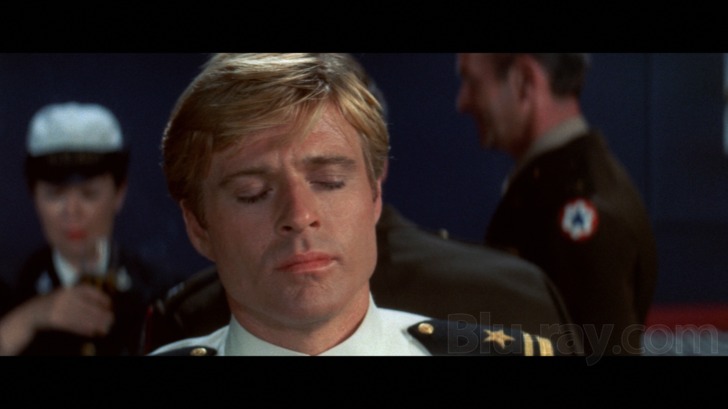
The Way We Were features typically stellar work from Sony-Columbia, delivered via an AVC encoded 1080p transfer in 2.40:1. The film's palette is beautifully reproduced on this Blu-ray, with an array of bright primaries (check out the red "berries" on Streisand's blouse in the first screenshot) and cooler hues accurately and sumptuously filling the screen. Fine detail is superb, highlighting the fine work of costume designer Dorothy Jeakins. Pollack utilizes a lot of location work, and nice aerial shots of sailboating offer some great depth of field. The image is stable and damage free, with excellent clarity and contrast. A very natural looking layer of fine grain is also completely in evidence, but never overly obtrusive.
The Way We Were Blu-ray Movie, Audio Quality 
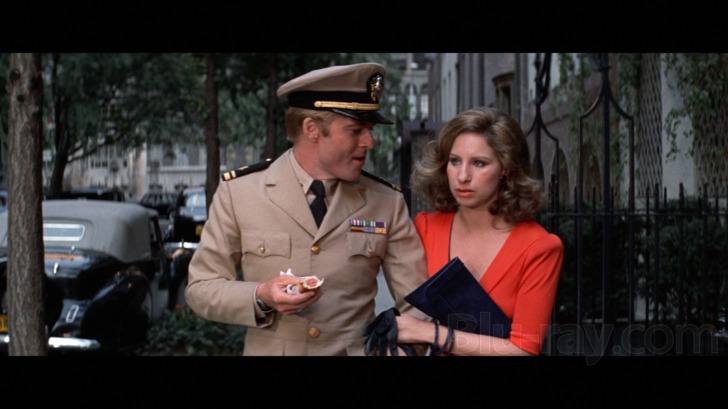
The Way We Were's lossless DTS-HD Master Audio 5.1 mix is really rather surprisingly immersive quite a bit of the time. Katie's big moment in front of the microphone on her college campus has a nice sense of space (and there's excellent use of side and rear channels for the crowd noises), and later when she and Hubble are surrounded by reporters during the HUAC hearings, there's a palpable sense of sonic claustrophobia. Scenes by the ocean also sound great, with a nice sense of spaciousness. Hamlisch's music is very expressive and spills into the surrounds (even though it tends to be mixed very low quite a bit of the time). And of course Streisand's inimitable rendition of the legendary theme sounds fantastic. Dialogue is very cleanly presented and while this isn't an overly showy track, it's much more generally immersive than most romantic dramas tend to be.
The Way We Were Blu-ray Movie, Special Features and Extras 
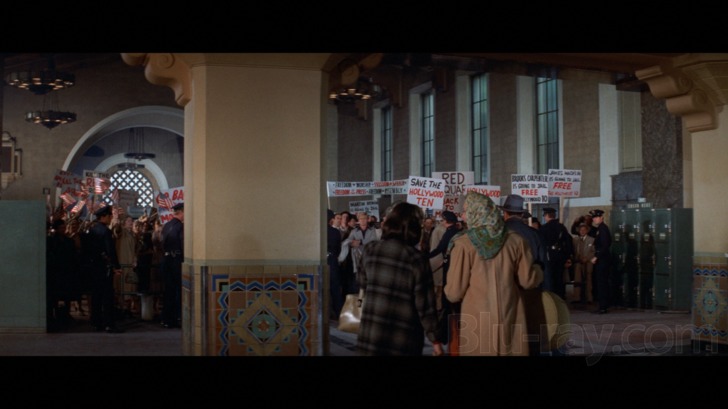
- Audio Commentary with Director Sydney Pollack. This is a very sweet but informative commentary by Pollack. He gives quite a bit of background data (including some surprising tidbits like some script doctoring that was done) while also imparting lots of anedotes about the shoot.
- Audio Commentary with Julie Kirgo and Nick Redman. Twilight Time's Redman and Kirgo are starting to contribute quite a few commentaries on their new releases, and this is an enjoyable trip down memory lane for the two, who briefly discuss their own partnership and history with the film before moving on to a nice variety of information about not just the film but tangential items (like a proposed sequel that Robert Redford wanted to get off the ground but which never materialized).
- Looking Back (480i; 1:01:34) is a great vintage featurette (if that "ette" even applies, given the length of this piece) which includes interviews with the principal cast and crew reminiscing about the film.
- Original Theatrical Trailer (1080p; 2:25)
- Isolated Score. Marvin Hamlisch's Oscar winning score is presented via DTS-HD Master Audio 2.0. This does include the theme song sung by Barbra Streisand.
The Way We Were Blu-ray Movie, Overall Score and Recommendation 
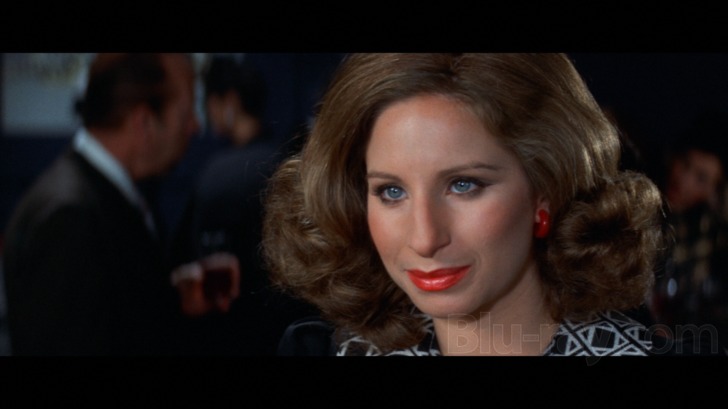
The Way We Were has always struck me as a bit too pat for its own good. Katie is too much of a one note activist, and Hubbell is too much of a bland sort of "go along to get along" guy for the characters to really take hold. I recognize I'm probably in the minority with this viewpoint, but as I mentioned above, even I can't deny the film's emotional power and the beauty of the lead performances. Hamlisch's music is simply icing on the cake. So even though the cynic in me may be weeping silently over the next few days, despite my passing qualms with some of Laurents' conceits, the technical merits of this Blu-ray make this an easy Highly recommended.
Similar titles
Similar titles you might also like

The Longest Ride
2015

Brooklyn
2015

The Disappearance of Eleanor Rigby
Includes "Him", "Her", and "Them" Cuts
2014

Gentleman's Agreement
Fox Studio Classics
1947

By the Sea
2015

Learning to Drive
2014

At Middleton
2014

My Blueberry Nights
2007

Anna Christie
Warner Archive Collection / Includes German-Language Alternate Version
1930

The Eddy Duchin Story
Limited Edition to 3000 - SOLD OUT
1956

Spread
2009

Young Man with a Horn
Young Man of Music / Warner Archive Collection
1950

The Clock
Warner Archive Collection
1945

From the Terrace
Limited Edition to 3000
1960

Desert Hearts
1985

After
2019

At First Sight
1999

Picnic
Limited Edition to 3000 - SOLD OUT
1955

Some Came Running
Warner Archive Collection
1958

W.E.
2011
